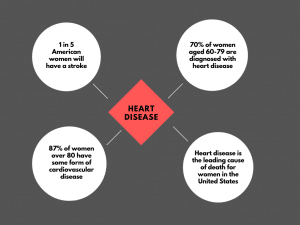A Medicare Supplement Plan can save you hundreds of dollars each year. These plans are sold by private companies to help cover the healthcare costs that Original Medicare does not cover, such as copays, coinsurance, and deductibles. They offer great benefits and savings, and can be especially helpful for older adults who are on a fixed income. But here’s a question: can you lose your Medicare Supplement Plan? It is rare, but yes, your insurance company does have the right to cancel your Medicare Supplement Plan under certain circumstances.
Providing False Information
When you apply for a Medicare Supplement Plan, you have to provide your personal information, and in some cases, your medical history to the insurance company. If you provide false information, your insurance company can cancel your Medicare Supplement Plan. For example, if you are a smoker and lie about your tobacco usage, the moment the company finds out that you lied, they can retroactively cancel your plan.
In order to avoid this, make sure you are as honest as you can be on your application, and if anything changes over the years, make sure to contact your insurance company and let them know. Being transparent with them means you will not risk losing your Medicare Supplement Plan.
Failure To Pay
Things happen and situations change. Maybe your income has been reduced for some reason, or maybe some unexpected expenses have come into your life. Either way, you might fall behind on your Medicare Supplement Plan payments. If this happens, you will receive notices of delinquent payment from your insurance company; if you still do not pay, they will cancel your plan due to nonpayment.
To avoid this situation, be sure to make your payments on time. If you do have some financial difficulties, notify your Medicare Supplement Plan insurance company. Many companies will work with customers who are dealing with financial hardship. You can discuss your options with them and you might be able to work something out to keep your plan.
The Insurance Company Goes Bankrupt
Insurance companies are businesses, and they can go bankrupt. If your insurance company goes bankrupt or becomes insolvent, your plan will be canceled. Fortunately, even if this happens, you will still have guaranteed-issue rights, which means you will have 63 days after coverage ends to apply for another Medicare Supplement Plan. If you apply for a plan after the 63 days, you will face medical underwriting, which means an insurance company can use your pre-existing conditions to either raise the price of your plan, or deny you coverage.
Can You Switch Plans?
If you want to switch Medicare Supplement Plans to get more coverage or lower monthly premiums, you can, but the best time to do so is during the 6-month Medicare Initial Enrollment Period open to you when you turn 65, or if you lose your plan due to your company going bankrupt. These are the only times you can get a plan with guaranteed-issue rights. Outside of these times, you can still switch plans or sign up for a new plan, but you will be subject to medical underwriting.
If you are looking to switch plans or are in the market for a new plan, EZ.Insure can help. Our agents work with the top-rated insurance companies in the country, so we are able to easily compare plans in your area in minutes. We will help you find a Medicare Supplement Plan that meets your financial budget and medical needs, so you can start saving money. To get free instant quotes, simply enter your zip code in the bar above, or to speak directly with a licensed EZ agent, call 888-753-7207.











